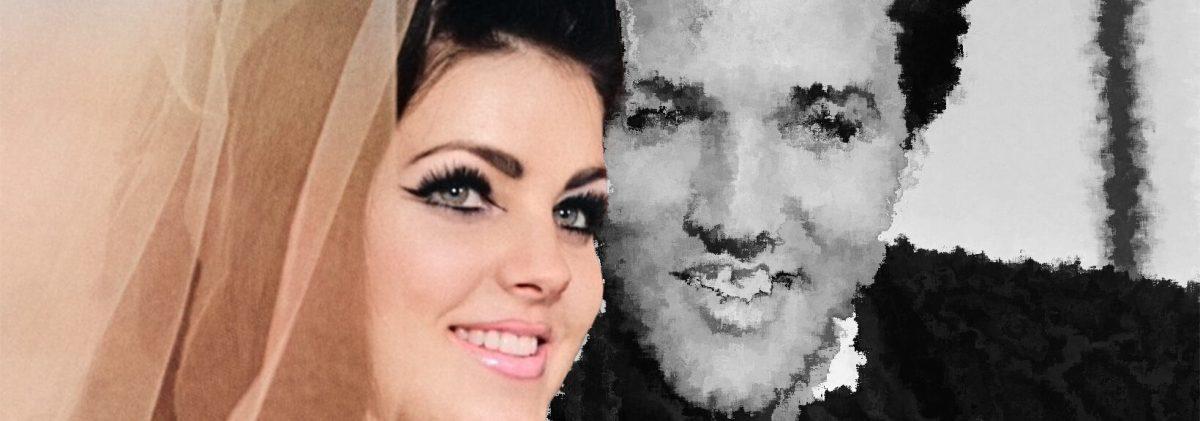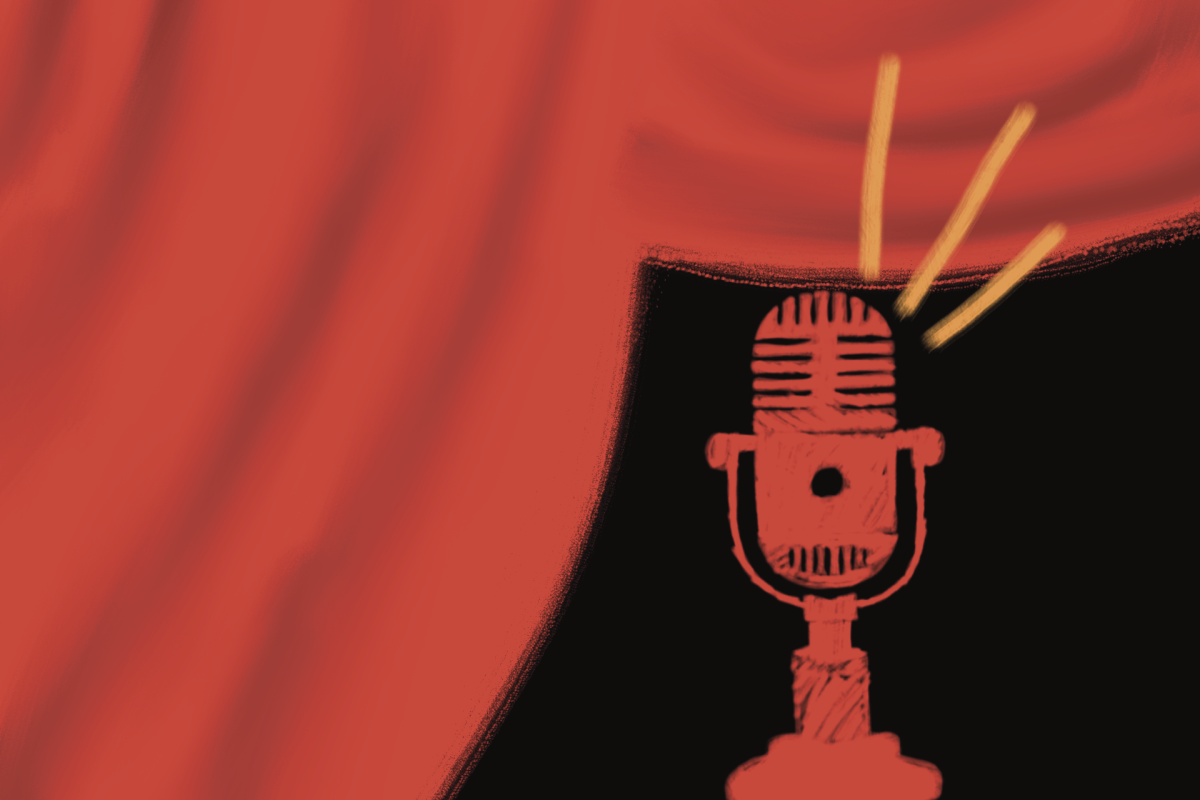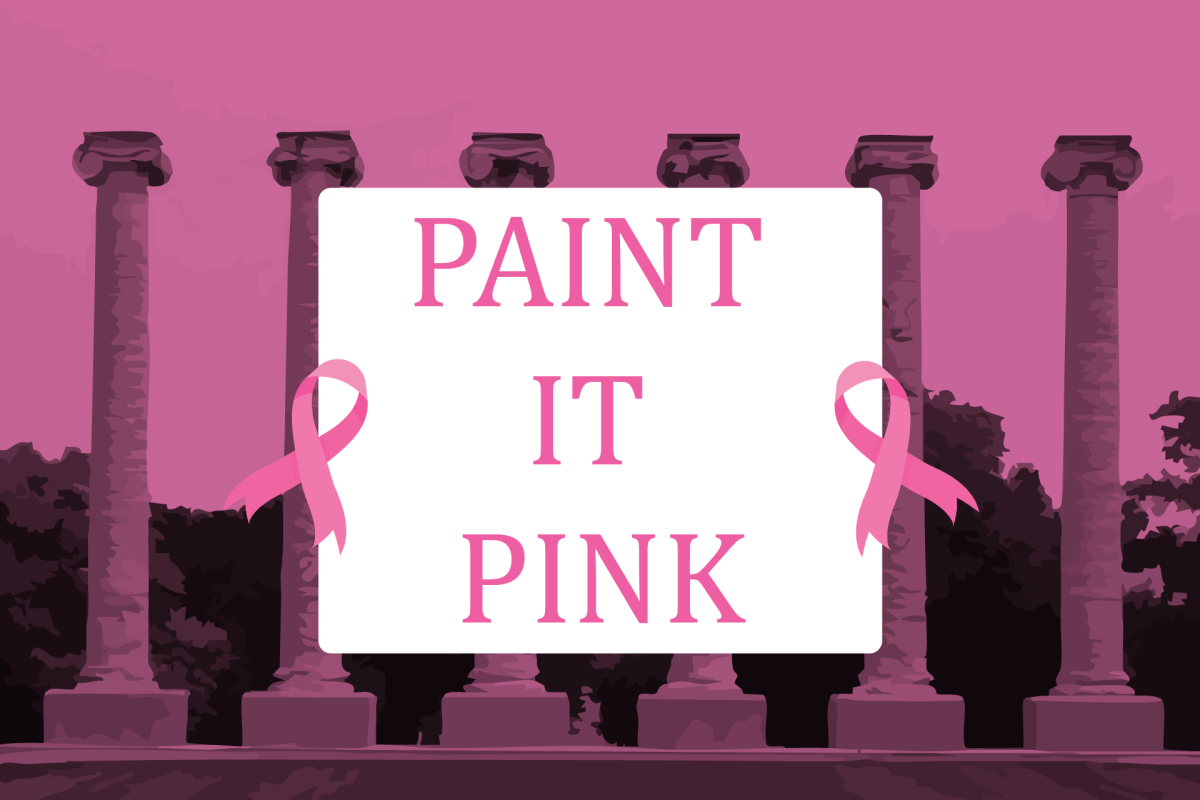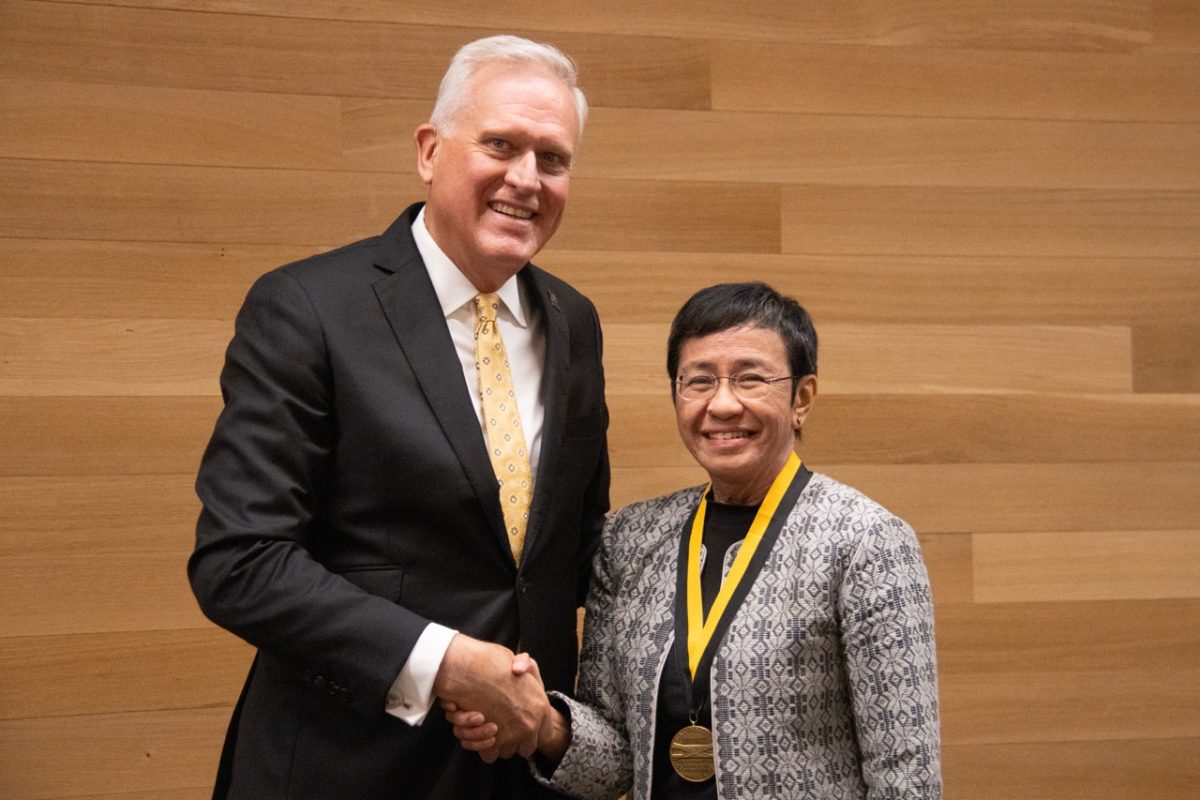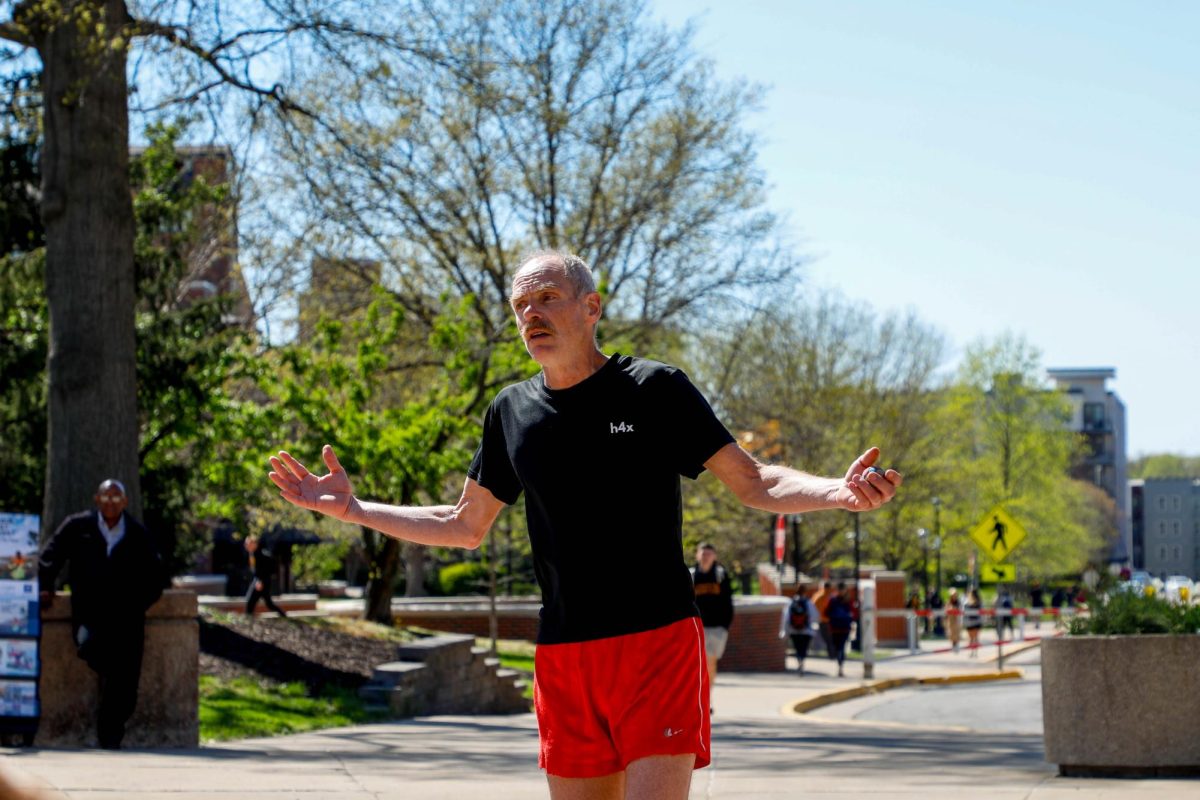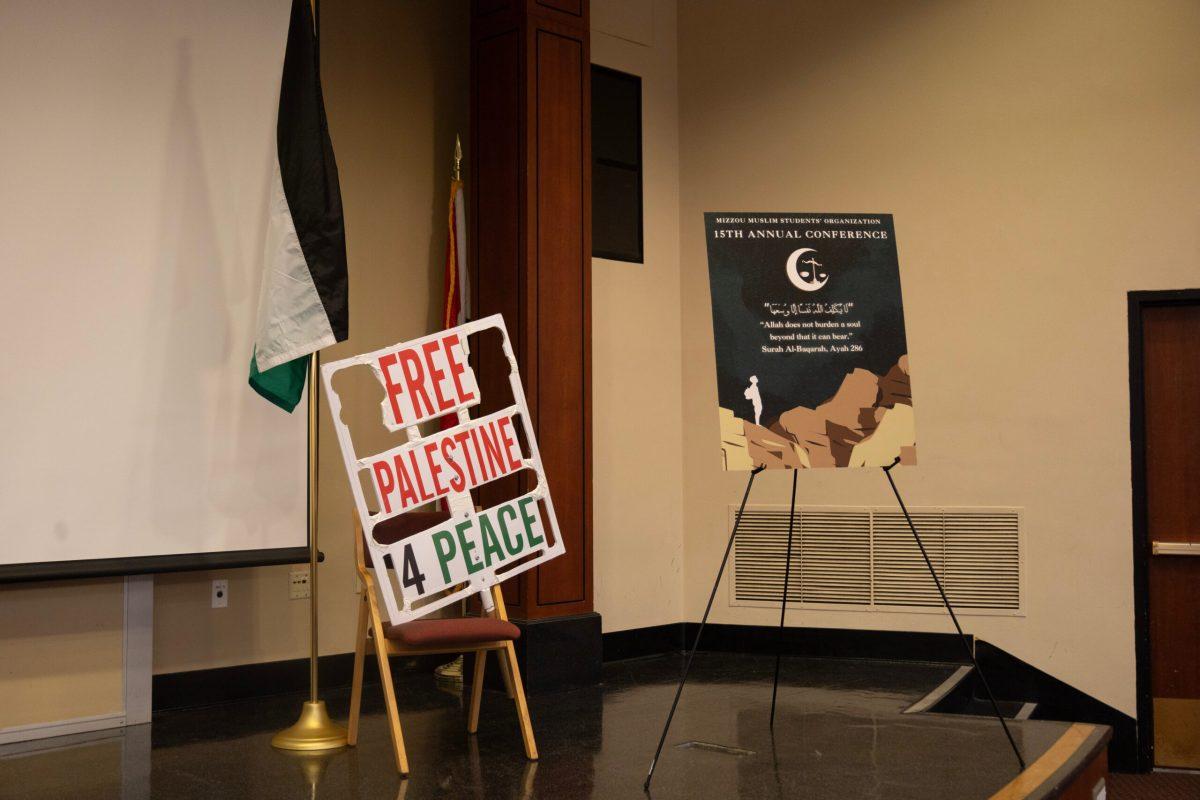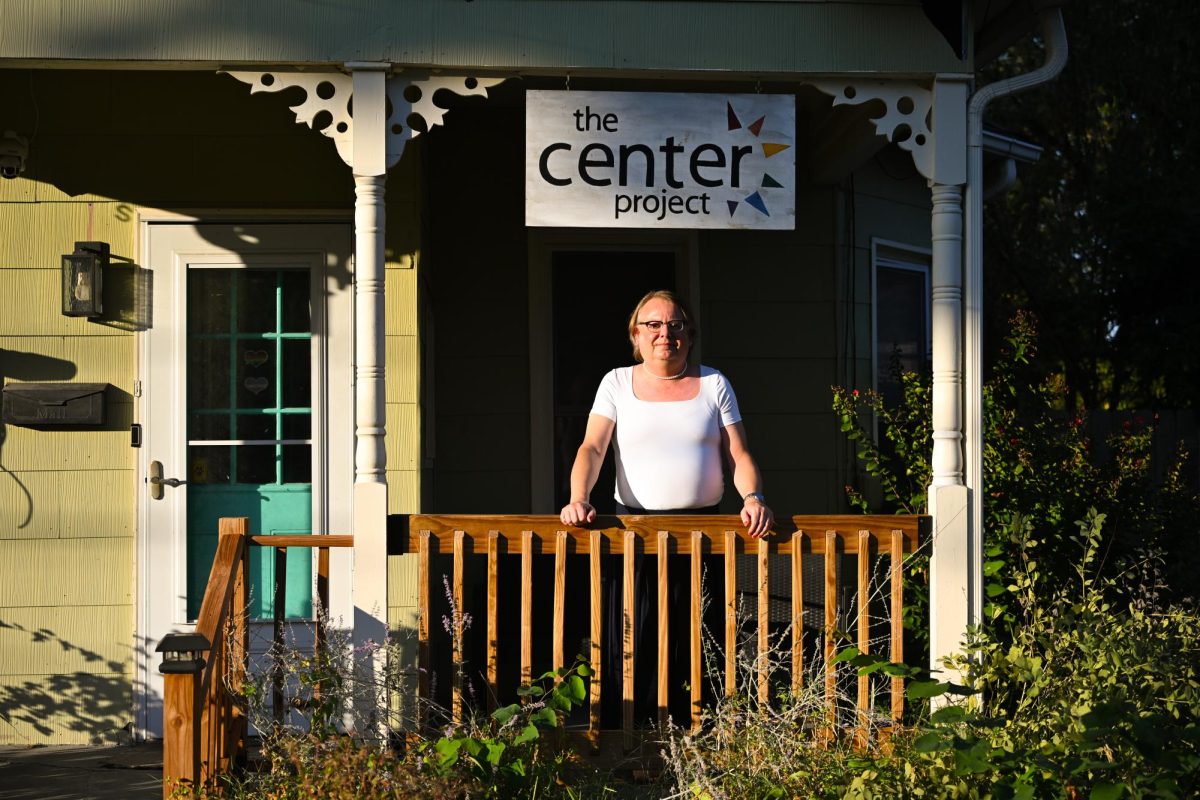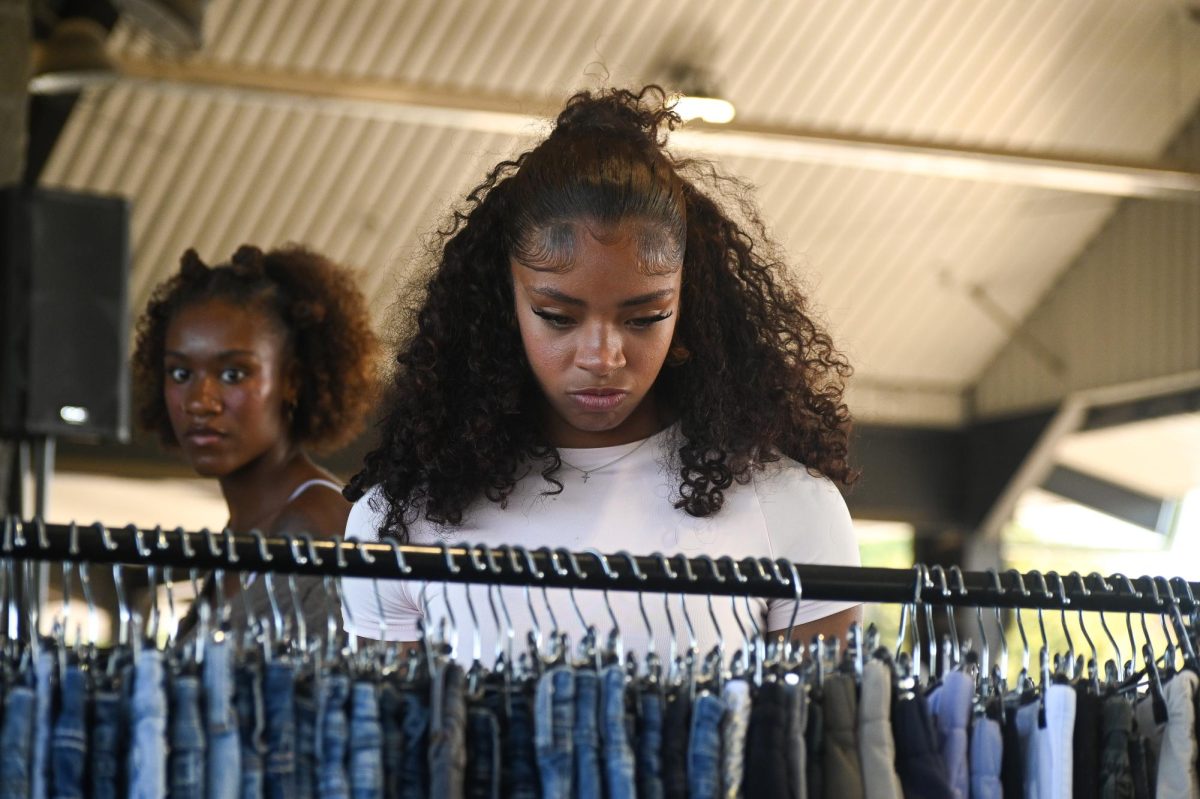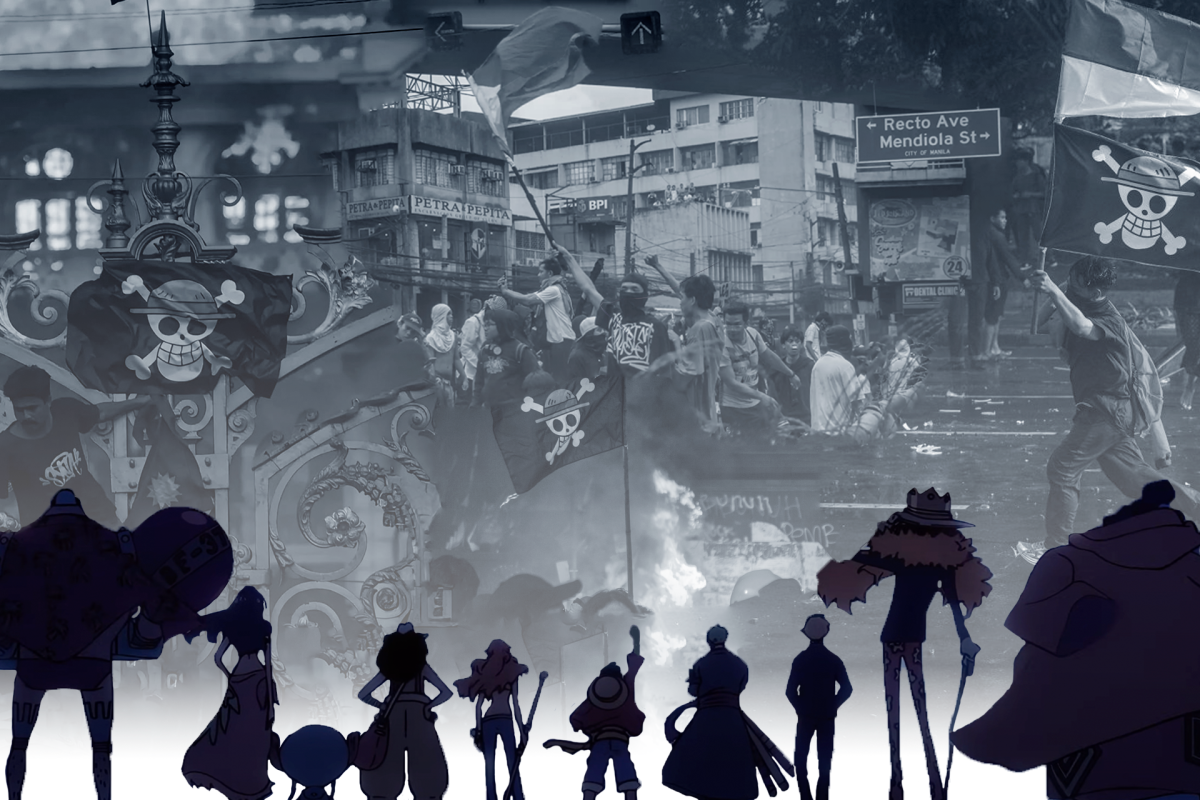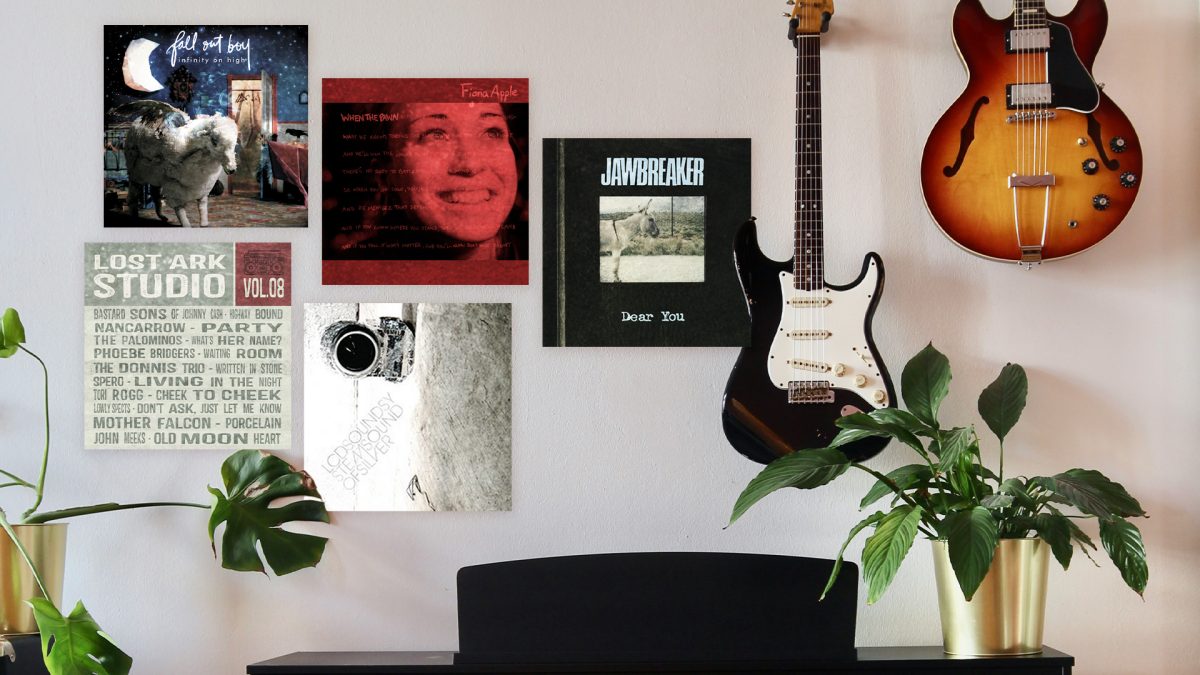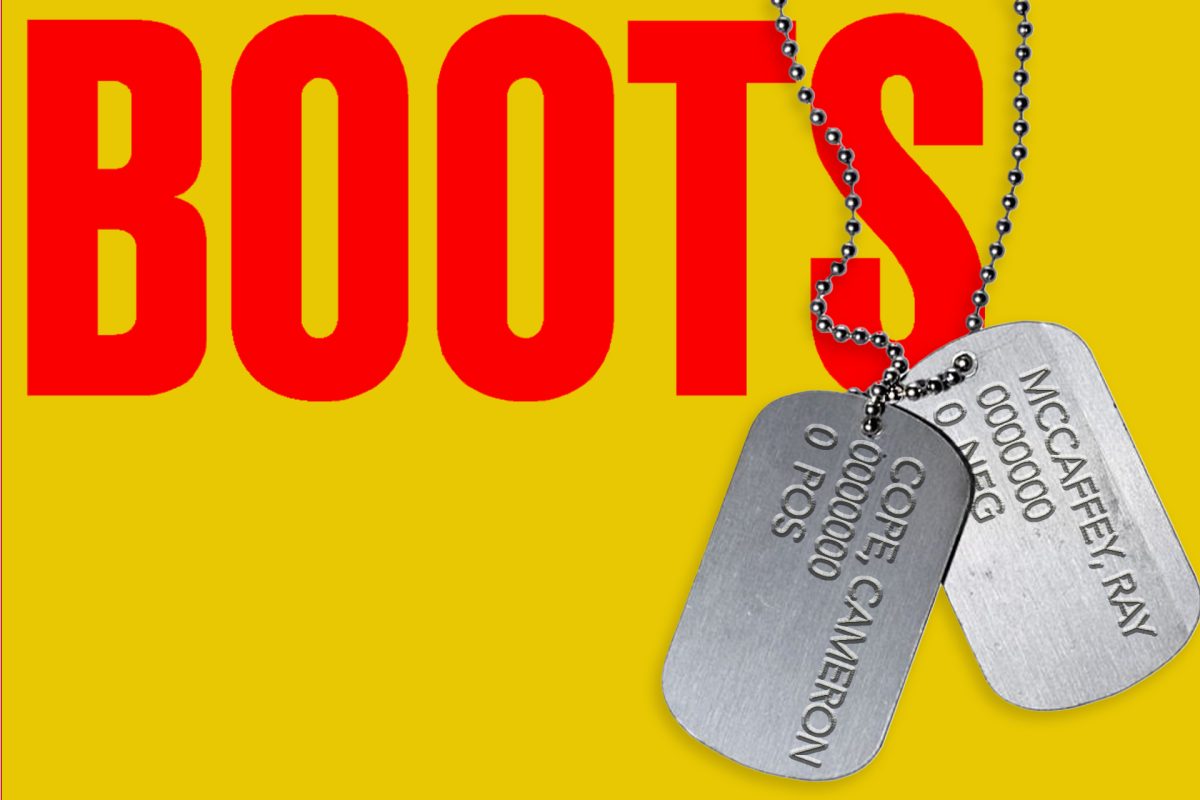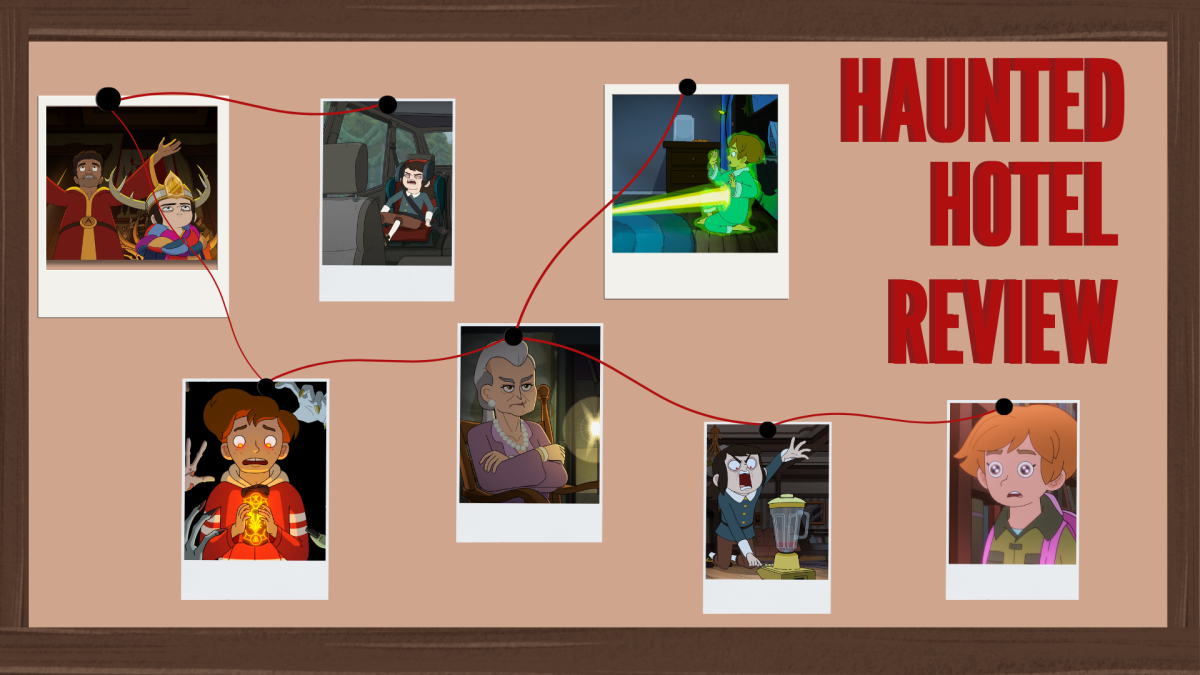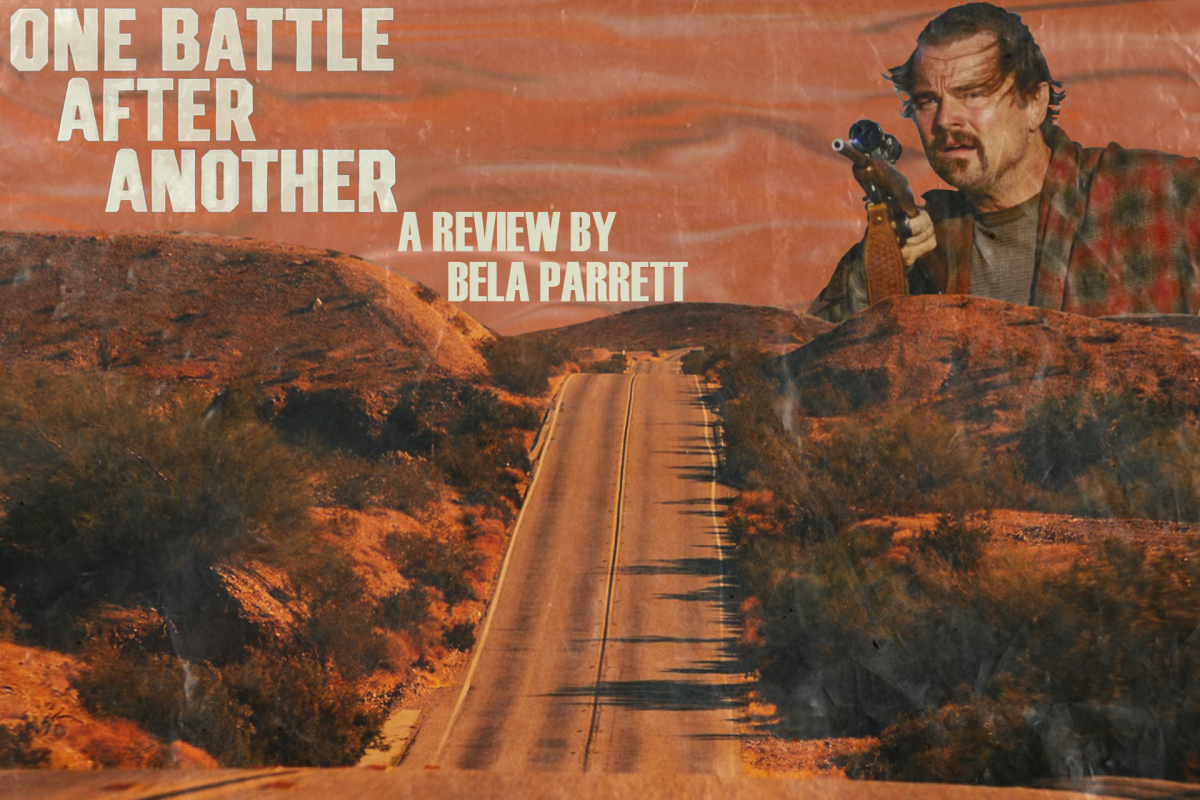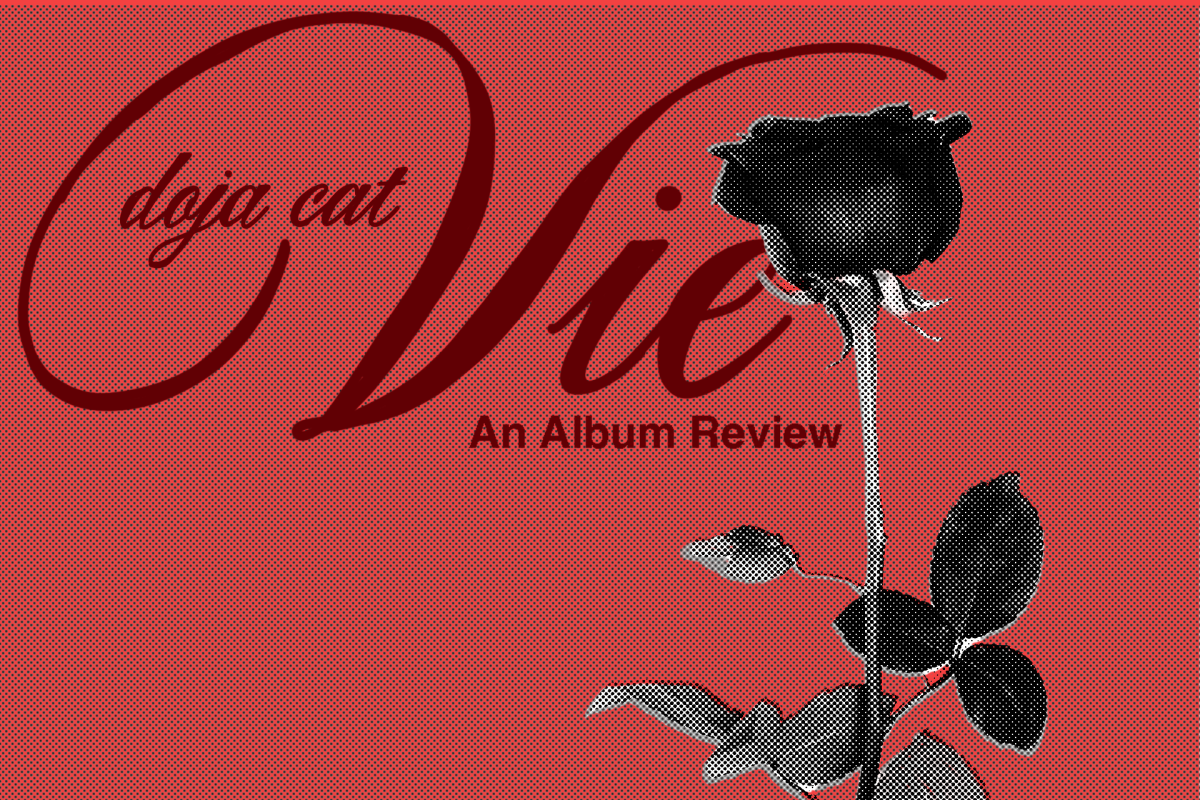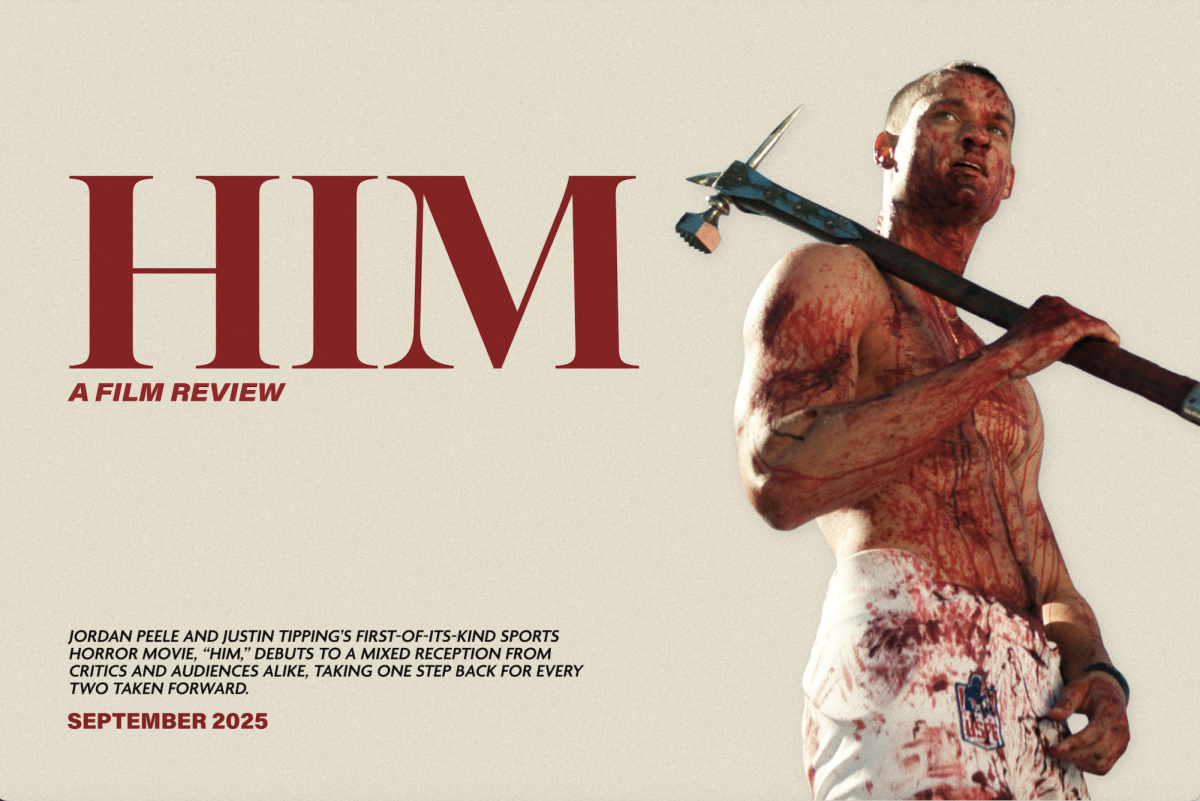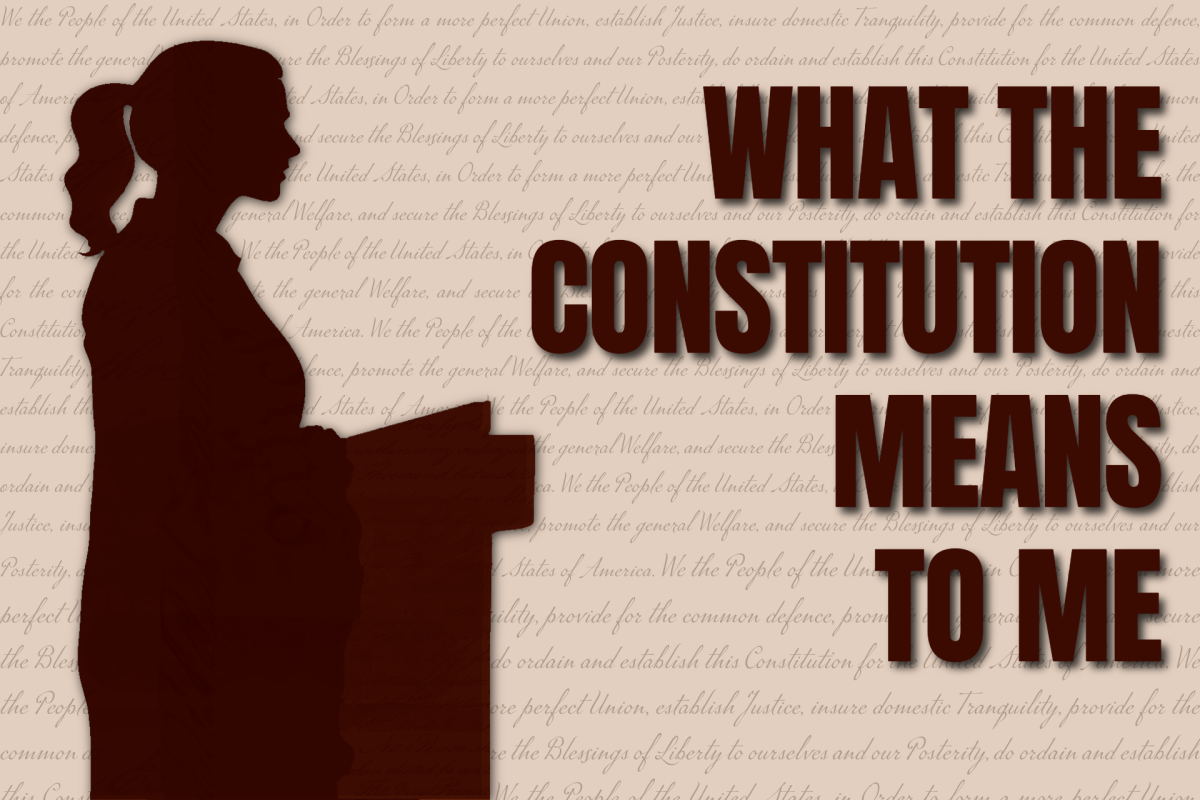Priscilla” intimately repaints the portrait of the all-American icon.
REVIEW: “Elvis and Me” by Faith Jacoby
After the release of the 2022 Warner Bros. film “Elvis,” starring Austin Butler as Elvis Presley, nicknamed “The King of Rock-and-Roll,” the adoration and criticism of one of America’s most influential figures of the 20th century has followed close behind.
Upon watching the film with mixed emotions surrounding Elvis, and particularly his relationship with his wife Priscilla, I purchased a copy of the popular biography “Elvis and Me” by Priscilla Presley herself.
Hoping to grasp a better understanding of their relationship from the woman who lived it, I began reading right away. After a few chapters, I grew bored and reluctantly placed it on my bookshelf, planning to revisit it sooner rather than later. Shortly after, I stumbled upon an announcement for Sofia Coppola’s new film, “Priscilla,” based on Priscilla’s biography.
As a fan of Coppola, I was undeniably intrigued. Now, the book stared at me from my bookshelf, practically screaming at me to be read. Without any hesitation, I picked up the biography again.
This time around, I was immediately drawn in. As someone who lives for compelling tidbits about the human side of larger-than-life figures, this biography was a jackpot. Starting off strong with Priscilla vividly describing the moment she found out Elvis had died in 1977, the rest of the book is a detailed timeline of their relationship up to that moment. Overall, the biography was a deep dive into their life behind closed doors and away from the camera shutter, forcing you to truly understand the imbalanced power dynamic between them.
Arguably the most prominent problem in their relationship, their age gap of a decade, was appallingly emphasized as Priscilla described partying all night only to wake up and go to school a few hours later.
Priscilla’s account of the struggle to balance being a teen girl and dating a world-renowned celeberty puts their two very separate lives into perspective. Especially as she recalled the whispers and rumors in the halls following her to class. For me, these scenes of innocence and insomnia painted a portrait of their relationship that I had never thought of – one of Priscilla’s girlhood slipping out from under her pink stilettos.
Priscilla fell victim to the front-page scandals and affairs which are unfortunately common for women entangled with prominent men. Whether they were fact or fiction, Priscilla reflects on her anger with the allegations and rumors, but recounts being gaslit by Elvis anytime she mentioned them.
These moments caused inevitable dents in their relationship, although Elvis somehow always had a way to solve the problem: a shopping spree, a new car, a puppy. This, to me, screamed “red flag” – no matter how famous and fabulous Elvis was, he was a manipulator, which the book exemplified through Priscilla’s stories.
Deep down, I was rooting for Elvis because of his charm and incessant influence on American pop culture, and the way the book reads made me realize that Priscilla felt the exact same way. While Elvis is an icon in every sense of the word, he was still a manipulative and neglectful husband, and much like many Elvis admirers, Priscilla would try to push that thought to the back of her mind. Even after their separation, Priscilla still talked fondly of him and claimed they spoke often until his death.
In all, I thoroughly enjoyed reading about these all-American icons and the ins-and-outs of their relationship. It was refreshing to hear Priscilla’s perspective on the highs and lows of both Elvis’s career and emotions behind closed doors instead of reading a biography of platinum records and box office hits. Through raw and unfiltered flashbacks, Priscilla gives us a peek into her private memories, exhibiting her vulnerability throughout her life.
Edited by Alex Goldstein | [email protected]
Copy edited by Emma Short and Sterling Sewell | [email protected]
REVIEW: Sofia Copolla’s “Priscilla” shows the feminine side “Elvis” ignored by Aurora Nicol
“Priscilla,” released on Nov. 3, is based on Priscilla Presley’s 1985 autobiography “Elvis and Me.” Sofia Coppola announced her adaptation on Sep. 12, 2022, three months after the cinema release of Baz Luhrman’s Oscar-nominated “Elvis.” Coppola’s project categorically makes sense for the director as it expands her film discography surrounding stories about women’s isolation in “gilded cages” — the forboding Versailles of “Marie Antoinette”, the droning suburbs of “The Virgin Suicides”, and the isolating Tokyo of “Lost in Translation” and now the Graceland inhabited by “Priscilla.”
Like any well-planned movie, “Priscilla”’s trailer and teaser content were primarily pulled from the first act of the film. This gives the audience plenty to look forward to, especially since the story of Elvis Presley is so widely known and still culturally relevant following the release of “Elvis” last summer.
This previous release looms over the movie, especially with acting comparisons between “Priscilla”’s Elvis, played by Jacob Elordi, and Austin Butler’s highly publicized performance in 2022. Whereas in “Elvis,” where Tom Hanks plays the villain in Presley’s life, “Priscilla” presents the idea that Elvis is the villain in Priscilla’s.
Parental involvement is an overarching question throughout the film set between 1959 and the early 70s. Priscilla is first introduced at age 14 with a quintessential teenage line — “I’ll have to ask my parents.”
Priscilla’s parents are minor characters who shape the beginning of the film and Priscilla’s life before Elvis, something the audience doesn’t see much of. The film opens with leading actress Cailee Spaeny in a diner after class working on homework and drinking a Coca-Cola. A lieutenant approaches her and asks if she’d like to come to Presley’s party that weekend.
Presley met Priscilla in Germany while serving in the military. But the audience is told this through context as their romance progresses. Presley is enchanted by Priscilla’s small demeanor and Texan past. He reminisces on being from the South as well and asking “What are the kids back home listening to these days?”
Priscilla responds, “Bobby Darin, Fabian and you.”
She’s invited to come back, even after Elvis is made aware that she’s in grade nine. Elvis asks her to meet him in his bedroom, where he tells her about how his mom, who recently died, would’ve loved her.
The “red flags” we see between Elvis and Priscilla are transcendental. Elvis is no different than the manipulative, emotionally unavailable men of today’s world. He flirts with other girls and tells Priscilla not to worry. He apologizes for his bad behavior with lavish gifts. He’s controlling, demanding and imposes his fame — weaponizing it as a tool to belittle her.
The casting of a towering 6-foot-5-inch’ Elordi made for a great visual representation of the larger-than-life “King,” often taking up the entire frame or casting a shadow on Priscilla literally and metaphorically. His characterization brings the female audience closer to Priscilla, and we can imagine and try to relate to her through our own experiences with arrogant men. Without his songs, which the Elvis estate denied the use of in the movie, he’s simply portrayed as a terrible, grooming husband.
Women’s roles in film and media production are at the forefront of our minds following the box office smash hit “Barbie,” written and directed by Greta Gerwig. But Coppola has long led the conversation on female involvement in the film industry, beginning with her 1999 directorial debut “The Virgin Suicides”.
“When I was starting, it was really hard to get [stories from women’s point of view] made and now it’s become more of a norm,.” Coppola said in a 2020 interview with Yahoo News.
“So those are the stories that interest me from my point of view and I think the more and more different points of view that we see, the better. So, hopefully, it’s opening up to all kinds of voices.”
This is exactly why I was initially perplexed by “Priscilla.” I ran myself into a loop trying to justify why this movie about Priscilla Presley feels so much more about a man, Elvis, than its female lead, Priscilla. On one hand, the media attempting to capture her life physically cannot do so without making it about Elvis because her life truly was made in his image. She met him at such a young age that there can’t and will never be a version of her that goes untouched by Elvis’s image.
Coppola’s approach to filmmaking has long centered on a female audience. And in our modern day where little girls grow up hearing they can be anything and do anything a boy can do, it doesn’t make sense to end a movie on a woman’s story when she leaves her husband. It might seem that her story is just that of her relationship with that man.
Spaeny’s performance and character is the one that really sticks out against that of Elvis. With the power of an amazing costume and makeup team, as well as Spaeny’s acting, we truly watch over a decade and a half of change. A girl becomes a woman while Elvis remains more or less static.
Priscilla barely appeared in Lurhman’s 2022 epic, and “Priscilla” makes up for the unheard perspective not just of Priscilla Presley, but women everywhere.
Edited by Alex Goldstein | [email protected]
Copy edited by Sterling Sewell | [email protected]


